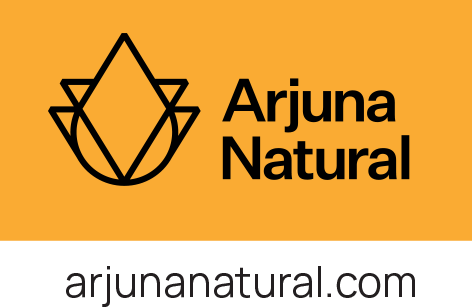Arjuna Natural announces a surge in demand for its range of key botanicals, especially its flagship BCM-95 turmeric extract. Consumers globally are expressing a greatly increased interest in natural solutions to take proactively as preventative healthcare measures.
“We have noted an upsurge in demand across the board for all of our products in recent weeks,” reports Benny Antony, PhD, Joint Managing Director for Arjuna. “Our BCM-95 — Curcugreen turmeric especially gained extraordinary popularity.”
BCM-95’s unique composition of curcumin and essential oil of turmeric has the backing of 68 scientific studies to date for its superior bioactivity and proven efficacy in alleviating numerous inflammatory conditions. It is now a leading industry standard for high-purity, organic, bioavailable curcumin.
“Immunity and well-being are broad concepts,” adds Antony. “There is no one magic elixir for achieving optimal health. Nevertheless, consumers are going back to traditional medical roots and seeking foods and dietary supplements that can boost natural resilience, and help mitigate certain conditions they might already be suffering.”
“In the Ayurvedic system of medicine, turmeric is highly valued for its reputation for alleviating various respiratory problems, such as asthma, allergy, colds, sinus infection, and inflammatory issues,” explains P. J. Kunjachan, Chairman and Managing Director of Arjuna.
“Modern research has reinforced turmeric’s antimicrobial, antifungal, antiviral and anti-inflammatory properties. Its all-encompassing attributes, plus centuries of safe use, are factors that resonate with consumers and explain the ingredient’s popularity in these trying times.”
Demand for Arjuna’s potent ashwagandha extract SHODEN has also taken a recent upturn.
SHODEN is recognised for its positive effect on mental well-being and is clinically proven to support restorative sleep. Shoden fits into another category of natural aids that consumers are seeking to help cope with the stress aroused by social isolation and uncertainties for the future.
“We always maintain reserve capacities as part of standard procedure to deal with surges,” contributes Antony. “The lockdown led to some brief backlogs.” To cope, Arjuna rushed production orders and swiftly moved product to distributors before the onslaught of the worldwide transportation disruptions. At the same time, the company maintained its high standard of full traceability of the supply chain.
“As platforms for physical interactions and trade shows grind to a halt, we are reinforcing our digital presence and reinvigorating our marketing and communications plan,” assures Antony. “Our customer service team is in constant contact with our clients and suppliers to overcome the logistical bottlenecks, to ensure stocks are adequately replenished, and to provide a safety net.”
The company faced only minor hurdles in sourcing raw materials, as its principal suppliers are local farmers and agro traders in Kerala. Moreover, Arjuna’s R&D team has been working full force and in full compliance with all safety directives.
Social responsibility in good times and bad
Arjuna also has been actively contributing to the effort to flatten the COVID-19 curve. It donated 2,000 liters of hand sanitiser, manufactured in its own facility, to frontline pandemic forces. The company has retained its entire workforce, and salaries have been paid in full even during the full-phase lockdowns.
The company also joins in government efforts to offer disaster relief. Currently It is supporting the co-ordination of community kitchens, to protect migrant labourers and those financially challenged. It has distributed masks as well as BCM-95 capsules to its employees and their families.
“Even in good times, we are attuned to our sense of responsibility to our community,” adds Antony.
“Arjuna has assisted in the construction of more than a dozen homes for underprivileged communities as part of its corporate social responsibility program. The company partners with tribal communities across India in acquiring high-quality herbs and botanicals, helping them become self-sustaining.”

